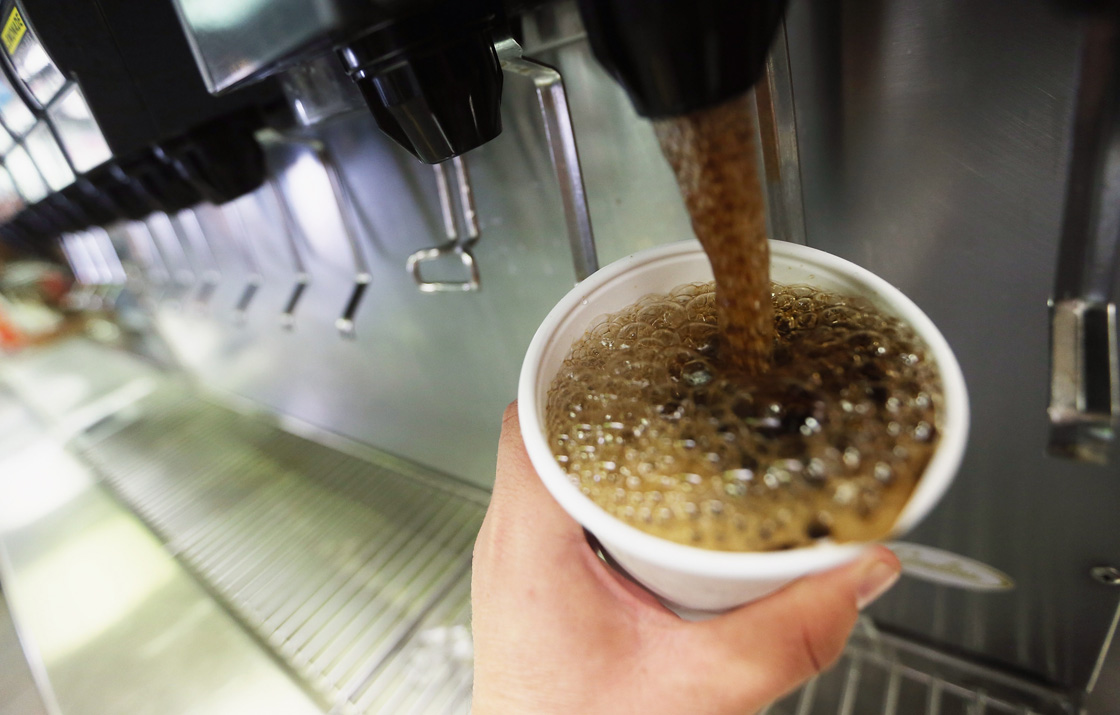This story has been updated with new comments from Health Canada and Pepsi.

TORONTO — Sugary sweet, cold and refreshing, with an ingredient that comes with a cancer warning label in California?
Coca-Cola has already implemented changes to its caramel colouring, removing a toxic chemical from its recipe, but Pepsi products still contain the harmful carcinogen, a watchdog group says in a new study.
More than a year after the two soda giants vowed to remove a carcinogen from their soda recipes, one company has complied, but the other is still in transition, environmental group The Center for Environmental Health says.
The organization collected 10 of each product from across the U.S. for its investigation. Results showed that most Pepsi products still contained four to eight times the recommended safe amount.
Nine of the 10 Coke products contained little or no trace of 4-MEI.
“We applaud Coke for taking this health protective action for consumers nationwide. Pepsi’s delay is inexplicable. We urge the company to take swift action to provide all Americans with the same safer product they’re selling in California,” the CEH said in a statement.
Read more: What Canadians want to know about what’s in fast food meals
- Canadian man dies during Texas Ironman event. His widow wants answers as to why
- ‘Sciatica was gone’: hospital performs robot-assisted spinal surgery in Canadian first
- Canadians more likely to eat food past best-before date. What are the risks?
- Treatment from female doctors leads to lower death rates, study finds
At the centre of the years-long controversy is the iconic soda’s caramel colouring. An ingredient, 4-methylimidazole, or 4-MEI, allegedly poses a danger to those who drink cola. That’s according to the U.S. Center for Science in the Public Interest.
In 2011, the state of California listed 4-MEI as a carcinogen, forcing the coke companies to slap cancer warning labels on every can sold in the state, National Public Radio in the U.S. reported.
The products were tested outside of California in May and June by Eurofins Analytical laboratory in Metairie, La. The chemical wasn’t in any of the products in California.
Coke says it’s made the transition across the country so that it wouldn’t have to deal with two separate batches of product.
Pepsi told Global News that its new caramel colouring should be complete by February 2014. It said that it’s even working on changing the colouring recipe for global distribution.
“We strongly refute any claim that any product we sell anywhere is unsafe. The safety of our products is Pepsico’s top priority,” spokeswoman Gina Anderson told Global News in an email.
“The FDA and other regulatory agencies around the world, including the European Food Safety Authority and Health Canada, consider our caramel colouring safe for use in foods and beverages,” the statement said.
In March 2012, the soda companies came under fire for their colouring process.
Read more: Coke, Pepsi change colouring process to avoid cancer warning labels in the U.S.
“Carcinogenic colourings have no place in the food supply, especially considering that their only function is a cosmetic one,” the CSPI said, calling on U.S. Food and Drug Administration officials to enforce changes.
At the time, Diana Garza Ciarlante, a Coca Cola spokeswoman, said that reports of a recipe change are wrong.
“We are not changing our recipe or our formula. What we did do is direct our caramel suppliers to make a manufacturing process modification in order to reduce the level of 4-MEI in our caramel so as to meet the requirement set by the State of California,” she said in an email to Global News.
Under the State of California’s Proposition 65, food products containing certain levels of cancer-causing chemicals must be labelled. 4-MEI was added to the list in 2011.
Read more: What one woman in Gabon taught doctors about global obesity
For now, there are no concrete plans to change the production in Canada.
4-MEI forms during the heating, roasting or cooking process of soy sauce, caramel and molasses and is found in trace, the Canadian Beverage Association says.
On Friday, Health Canada told Global News it does not believe the levels of 4-MEI in food are a risk to Canadians.
“Health Canada is of the opinion that the low levels of 4-methylimidazole that can be found in some foods does not represent a risk to Canadians,” the federal agency said in a statement.
U.S. Food and Drug Administration stated, “A consumer would have to drink more than a thousand cans of soda in a day to match the doses administered in studies that showed links to cancer in rodents.”
– With files from the Associated Press
carmen.chai@globalnews.ca
Follow @Carmen_Chai




Comments